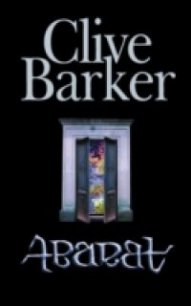Midnight Plus One - Lyall Gavin (читаем бесплатно книги полностью txt) 📗
I nodded. 'All right – whoshould this thirty-four per cent belong to?'
He sighed gently. 'The man who most wished to be secret. Max Heiliger.'
I'd heard of him. I glanced at Ginette – and so had she. One of those misty, legendary background figures whose nephews get into the gossip columns – mainly because they're his nephews. But nothing about Heiliger himself – even if you could find out something. You might also find out he owned the paper you worked for.
Then suddenly I remembered something hehadn't managed to keep out of the papers.
'He's dead,' I said. 'Killed in a private plane crash up the Alps a week or so ago.'
The smile was small and bleak. 'That is the trouble, Mr Cane. A few days after Max was killed, a man appeared in Liechtenstein with Max's share certificate demanding an important change in Caspar's affairs. You understand that with his thirty-four per cent he can outvote Herr Flez's thirty-three – unless I am there.'
With bearer shares there can't be any voting by proxy. The only proof that youare a shareholder is if you're there waving your share certificate.
Maganhard went on: 'Under the company's rules, any shareholder may call a meeting in Liechtenstein by giving not less than seven clear days' notice, midnight to midnight.'
'When does that notice expire?'
'He called it for the soonest possible time. The meeting must begin at midnight tomorrow plus one minute. We have a little more than thirty-six hours.'
I nodded. 'Should be time enough. But even if it isn't -can't you call a meeting for seven days later and reverse his decision?'
'His proposal, Mr Cane, is to sell all of Caspar's holdings. That could never be retrieved.'
I sipped at my glass. 'Wants to cash the company in and run for the hills, does he? He doesn't exactly sound like a legal heir. Who is he?'
'According to Herr Fiez, he called himself Calieron, a Belgian, from Brussels. I have never heard of him.'
I glanced at Ginette; she shook her head. She hadn't heard of him, either.
Maganhard said coldly: 'And even if a court decided that he wasnot entitled to this certificate, that would not bring back Caspar's holdings either.'
I asked: 'How much would Caspar's holdings be worth, now?'
He lifted his shoulders. The companies we control are valued very low – because, of course, all the profit is directed to Caspar. But we would be selling not just our shares, butcontrol of these companies. That might make the prices ten times what they are now. One might guess -at thirty million pounds.'
After a time I wagged my head to show that I understood. I didn't, of course. You can't understand a sum like thirty million. Perhaps Maganhard and Heiliger and Fiez hadn't really understood it, either. When you start playing around with that sort of money in dark corners, you shouldn't be surprised at the people you meet in dark corners.
'I see,' I said. 'Thirty-four per cent of that would keep a man in beer and cigarettes until his pension came due.'
He stood up. 'Do you now understand enough to get me to Liechtenstein safely?'
'At least I've got a better idea of the odds against it.'
He bowed to Ginette, frowned at me, and went away.
Ginette shoved back from the table and swung to face me. 'Well, Louis?'
'Well, Ginette?'
'What do you believe of this – fairy-tale?'
'Maganhard's story? I'll give you odds it's true. If he had any imagination, he'd have seen this sort of trouble coming.'
'But this Belgian – Calieron – can he do this thing? '
'With bearer shares you can do damn nearly anything. They shift the burden of proof: you don't have to prove you own them – somebody's got to prove you don't. Jesus, the trouble these people go to just to make trouble for themselves.'
She cocked her head at me, puzzled.
I said: 'People like Heiliger – and Maganhard. They spend their lives wrapping up their money in bearer shares, Liechtenstein registrations, numbered Swiss bank accounts -all so that the tax man can't find it. Then they drop dead -andnobody can find it. Nobody inherits anything off these characters; the banks hang on to most of it. How d'you think Swiss banks get so rich? Some of them have still got Gestapo funds they've refused to reveal. You think they're keeping it-for the Gestapo? The hell. They're just keeping it.'
'I did not realise you knew so much about High Finance, Louis. You must be a millionaire by now – no?' She smiled at me. 'I would like a, cognac, please – and not a lecture on how the English would make it.'
I gave her a look and went across to a tray of fat, dusty bottles that Maurice had left on the long sideboard. I found a 1914 Croizet and tried to pour but there was only a dribble left.
'Sorry,' I said. I was, too; I would have liked a drop for myself. I don't much like the sweet modern brandies, but I've no prejudices against a 1914.
She frowned. That bottle was opened only a week ago. I have taken perhaps a glass a day.'
'Maybe Maurice has got the taste.'
She tinkled the little bell. After a while, Maurice padded in. I walked away over into the patch of brilliant sunlight slanting through the french windows, and stared down into the valley, not listening.
The garden below the gravel terrace was a steep slope of coarse, close-cut grass ending in a mass of laurels and monkey-puzzle trees that hid the road. And up beyond it, the hazy blue hills on the far side of the Rhone, very calm and gentle. From here you couldn't see the dead men and crashed cars and the people running round biting each other's tails and sweating into telephones.
Ginette said: 'All is solved, Louis. Maurice gave your friend Mr Lovell a glass – and he took several glasses.'
I stood in the sunlight feeling as cold as a corpse's toes. She was smiling cheerfully.
'It only needed that,' I said. 'Only that.'
SIXTEEN
He looked like a man sitting out on the terrace in the sun, taking occasional small sips at a glass of whisky, chatting with Miss Jarman. And why should he look anything else? There was no reason why I should have expected to find him in a dark back room with the bottle tilted to his face. He didn't have to be a fast drinker. All he had to be was continuous. He'd go on sipping until he dissolved.
But that's the only difference.
His face had loosened up, and his wound didn't seem to be troubling him. He'd changed into a black wool shirt that hid the bandages. The girl, parked on another white-painted metal garden chair, was wearing a flame-coloured silk blouse, a skirt of expensive oatmeal tweed.
Harvey stood up as we came across. A smooth, balanced movement.
I said: Turned out wet again, hasn't it?'
'It's been a long trip, so far.' He smiled crookedly, and offered Ginette his chair. She shook her head politely and leant against a tall flowerpot in the shape of a Grecian urn.
I said:'So far is right. We aren't there yet. We're starting at midnight.'
He slanted his eyebrows. 'Not spending the night?'
'I want to cross at Geneva at first light. Will you be ready?'
Miss Jarman was looking at me with a curious frown. 'Do you think he should rest, with his wound? I think so.'
Harvey said gently: 'I don't think he meant that.'
She frowned again. 'Well, what did you mean, Mr Cane?'
'Tell us what you mean, Cane,' Harvey said, still wearing his twisted smile.
'I mean the man's an alcoholic! ' I snapped. 'By midnight he'll be a puddle singing Sweet Nellie Dean! '
The Psychological Approach, of course.
The girl came out of her chair like a loosed spring. 'Who told you that?' she demanded. 'Why shouldn't he have a drink? He got hurt!'
It surprised me. I hadn't quite expected her as Harvey's defence counsel. I calmed down a bit. 'All right. So he got himself shot. But he's still a three-shifts-a-day boozer.'


